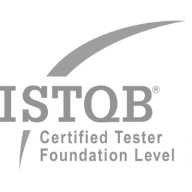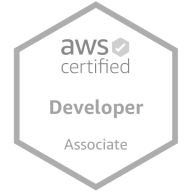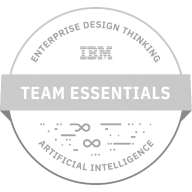
Want to know more? — Subscribe
Technology advancements enable doctors and their patients to connect over distance using video-conferencing and cloud-based online tools. Having become crucial in COVID times, digital telemedicine apps have already revolutionized the healthcare industry by saving time and resources and giving people plenty of new options.
But what about pets? Veterinary app development makes the connection between veterinarians and pet owners just as easy. Custom veterinary apps, such as the PetRealTime app developed by Softermii, let your clients join consultations from the comfort of their homes.
The range of services in the field of animal healthcare goes beyond urgent matters. Your patients do not need to drive to the clinic if they can ask questions via a user-friendly platform. Reporting symptoms, inquiring about medication, or following up during post-surgery recovery — all of these functions at the tip of your fingers!
The American Pet Products Association reports that in 2022, 70% of households in the US owned a pet. Thus, to meet the demand of a growing customer base new applications for pet lovers constantly emerge – take DogVacay, for an example – it connects pet owners with sitters.
As a result, veterinary businesses around the world are looking into digital solutions to offer services efficiently at no extra cost and attract new clients. Creating an application for your vet clinic is easier than it seems, while the benefits outweigh the costs. If you are thinking about how to build a veterinary telemedicine app, here is all the information to get you started.
In this article, Softermii experts will walk you through the perks of vet app development, its possible features, and the legal regulations of such software. Also, we’ll introduce a couple of successful cases from our portfolio.
Veterinary App Market Overview
Veterinary medicine, like many other industries, is undergoing digital transformation to remain competitive and provide customers with more opportunities. In addition, going digital boosts the development of the veterinary business in many ways.
- According to Statista, in the US only, 69 million households owned at least one dog according to a 2022 pet owners survey. Cats ranked in second place, with around 45.3 million households.
- By 2030, the US veterinary market is anticipated to reach over $23 billion, while the worldwide veterinary industry is expected to reach over $110 billion by 2028.
- A loving pet owner has to deal with many expenses — regular checkups, surgical visits, food, supplementary vitamins, grooming, and, of course, occasional treats. On average, a dog or cat owner needs to spend from $500 to $1500 per year.
- In 2021, there were 4.41 million pets covered by insurance in North America. Meanwhile, the market share of pet health insurance has been steadily growing over the last few years (with almost 30% of growth in the last year alone). As the number of pet owners goes up, so does the need for professional veterinary care.
- Vet app development is revolutionizing the industry. Cloud-based on-demand vet apps make clinics more organized and client-oriented. No need to juggle data management and business processes; one platform can handle all this while vets focus on treating animals.
Features for Your Veterinary Practice App
Vet on-demand app development is similar to other applications which connect businesses with their clients. Therefore, your app can have as many useful features as you need. Here are some options:
Scheduling the Doctor's Appointment
Booking over the phone is time-consuming and old-fashioned. In the digital age, clients find it more convenient to arrange their schedules without worrying about calling within office hours. Add your availability to the system and let the patient choose the best time slot in just a few clicks.
Managing the Medical Documents
What can be more tedious than browsing through the old client records in the email box? While communication via email has its advantages, there are definitely better ways to store scans, forms, and bills of clients and their pets.
Veterinary practice app development can solve this problem by setting up an automatic file and data storage system.
Vet Telemedicine Video Conferencing
It is hard to deny that video conferencing has become a normal part of everyday life in recent years. One of the reasons why many professionals prefer to work from home is because they want to spend more time with their pets. Thus, online consultations should be an essential feature of veterinary apps.
Why take one hour to the vet clinic for a 10-minute checkup? The road to a doctor’s appointment can be a stressful and burdensome experience, especially with a pet. Telemedicine is a win-win solution, both for the vets and their clients.
Instant Messaging
Non-urgent matters, such as questions about prescriptions or the need for general advice, can be solved via text messages. Build an on-demand vet app with this option in mind and optimize the time you spend talking to your clients.
A lot of pet-related inquiries are not urgent, and a specialist can resolve them in a couple of minutes. Your patients can always book an online call or opt for an in-person appointment when in doubt.
Pet Health Tracking & Monitoring
Data is a powerful tool when used strategically. Your clients can put all their pet’s essential medical data in one place. It is an excellent solution for multiple pet owners and a convenient add-on for vets that saves time and improves diagnosis accuracy.
Pet Profile & Medical History
Vaccination types and dates, information about all previous surgeries and checkups, the record of past prescriptions — all in one place. Authorized people can access the files from anywhere if they download the app and enter their password-protected account.
Pet owners fill in and update this data using an intuitive interface. Meanwhile, doctors benefit from seeing the whole picture of the animal’s health condition.
Searching for Nearby Doctors or Hospitals
If you run a chain of clinics, the map feature will come in handy for your clients. Once you add the addresses of your vets, navigating to the nearest one will be much easier for the user. They can also check opening hours and go to the appointment signup page right away.
E-commerce Integration
Vets often collaborate with other businesses and vendors. Some of the most typical products include pet food, vitamins, pet medicine, accessories, as well as toys.
Develop a veterinary telemedicine app and make it a powerful tool to effortlessly promote the goods and services of your e-commerce partners. It will benefit both you and your patients — for instance, they can get discounts at your partner stores via an app.
Vet Dashboard
The dashboard is the main feature used by the veterinarian as it helps to track patients’ visits, check the calendar, and plan future appointments.
What Else to Add to The Vet Application to Make It Special
Developing a telemedicine app can be a very creative process. After all, in addition to standard features, developers often add more advanced on-demand functions. Here are some options to take your vet app to the next level:
Treatment plans
A vet app can generate automatic or adjustable treatment plans, then sent directly to the client. Pet owners receive a detailed drug scheduling plan with reminders for the next checkup. Having it all in one app just makes sense!
Lab integrations source
Integrate with lab services and other medical professionals. Automatically receive results of tests to provide better treatment plans for your clients.
Custom form templates
Save time and money by not doing paperwork on your own. Set up customizable forms for your clients based on the questions you ask in consultations.
Automated invoicing
All the billing information is automatically sent over to the client and their insurance company without any extra work on your part.
Advanced reporting
Have a better understanding of what's happening with your clients and their pets. Customize reporting templates and add metrics that you prefer to work with.
Loyalty programs
Create opportunities for the pet owners to stay with you. Add promotions and discount deals to the app and encourage clients to stay committed to their pet’s health.
Pet Pairing
This feature is especially useful to breeders as they can signal to other pet owners that their pet is ready to reproduce and is looking for a partner. Thus, there can be a search through needed dog breeds and locations, offering the perfect match.
Technology Trends for Veterinary App Development
Thousands of people fell in love with fitness trackers and watches. So the idea of wearables for pets does not seem all that strange. Pet owners can now track their animals' whereabouts, the amount of activity they receive, their nutritional intake, hydration levels, sleeping patterns and so much more.
As apps become more advanced, so do the possibilities of enhancing them with useful features that seemed unimaginable a decade ago.
Internet of Things (IoT)
Smart dog collars and GPS attachments are all the rage now. The market for pet wearables was valued at $2.07 billion in 2021 and is expected to steadily grow further. These devices collect valuable data about animals to improve diagnostics and tell a lot about their condition. Just imagine an automatic synchronization between such collars and a veterinary app!
Blockchain
Telemedicine vet applications will likely store a lot of sensitive data about clients and financial transitions. Blockchain technology ensures that data is kept securely and can't be tampered with or hacked. Worldwide spending on blockchain solutions in 2022 was $6.6 billion, and it is projected to increase by almost 190% in 2024.
Machine Learning and Artificial intelligence (AI)
These days, doctors use AI for various purposes, such as diagnosing diseases, predicting health risks, and giving advice on treatments. The global market for artificial intelligence in the healthcare industry was valued at $11.06 billion in 2022 and is anticipated to reach $187 billion by 2030.
Develop a veterinary telemedicine app with AI to make automatic predictions about pets’ future health conditions based on their past behavior patterns and treatment history.
Augmented and Virtual Reality (AR & VR)
In 2022, The Royal Veterinary College (RVC) in London released a cutting-edge interactive app that enables veterinary students to engage in AR and VR learning from their smartphones. VR and AR offer students a virtual experience in animal anatomy studies, which significantly enhances practical sessions.
Although such features are mostly in development, it is still worth mentioning the potential of AR and VR technology for animal healthcare.
Recommended Tech Stack for a Veterinary App On Demand
There are no strict guidelines as to which technology to use when building a vet app. It all comes down to your needs, specific services you intend to deliver, and expectations about the result.
However, it is worth familiarizing yourself with some of the technical aspects to feel more confident when discussing the app development process with the IT team.
A technology stack means a combination of approaches and platforms used to create a mobile app. It is usually divided into two parts: the back end (structure, system, and database behind the app, invisible to the user) and the front end (the visual side of the app).
Before developing veterinary mobile apps, you are likely to face the dilemma of choosing the target operating system. The two most commonly used ones are Google's Android and Apple's iOS. The technology stack for either of them is different.
On average, iOS apps take less time to design and cost less to create and maintain than Android apps. There are a few reasons for this:
- iOS developers use the Swift programming language, which involves less coding. Android apps use Java or Kotlin, which requires more experience from programmers
- The screen sizes on Apple devices are standard, while Android devices have a wide range of screen sizes
Users of iOS and Android apps also differ in terms of their geography and age. Millennials and Baby Boomers are the largest segments of pet owners in the US. Despite technical complications, the Android market is still highly lucrative and has a significant worldwide footprint.
While reaching out to a large audience is important, choosing either Android or iOS in the beginning, might be a wiser strategy to optimize the expenses and time resources.
Regulations to Consider during Veterinary App Development
When developing veterinary mobile apps, federal US laws and regulations need to be taken into account. Both developers and vets need to be aware of the main institutions in charge of vet app authorization. Here is a brief overview of the legal acts and regulators:
The Federal Food, Drug, and Cosmetic Act (FFDCA)
This US federal law regulates cosmetics, medications, and food to protect consumer rights. This includes the use of medical equipment and mobile applications. If you want to develop a veterinary practice app that provides diagnoses and online treatment services in the US market, it is imperative to comply with it.
The Health Insurance Portability and Accountability Act (HIPAA)
If you develop a vet on-demand app, most likely you will need to store data on your clients and their beloved pets. Your vet app must be HIPAA-compliant if it keeps, manages, records, or shares personal information (e.g. email, date of birth, or insurance number). However, your app does not need to be regulated if it merely gathers anonymous data.
The Food and Drug Administration (FDA)
This federal body regulates veterinary hardware and software to guarantee its safety and effectiveness. FDA issues the necessary certification before releasing a veterinary app where doctors prescribe drugs during online consultations.
Nonetheless, you do not need to worry if your app provides data storage and educational services. So, it is worth checking which features of your app fall under legal oversight.
American Veterinary Medical Association (AVMA)
The association supervises patients' privacy and professional standards in the veterinary field. AVMA’s Ethics Code establishes the veterinarian-client-patient relationship (VCPR) principles. Here are some of the responsibilities of vets offering services using telemedicine apps. For example, veterinarians have to:
- Make responsible clinical decisions
- Observe medical guidelines and requirements for particular pet varieties
- Provide follow-up assessments and consultations
- Safeguard the confidentiality of client records
- Possess the license issued by the state where the patient is situated
How Much Does Vet App Development Cost
Veterinary telemedicine app development typically costs from $40,000. However, the whole expense may range from $40,000 to $120,000, depending on the features included. A veterinary app with fewer functions will be less expensive. Also, a minimum viable product (MVP) version of the app can be released immediately, while more expensive advanced features get added later on.
Typically, vet consultation app development takes between 1000 and 2000 hours. The maximum time depends on a number of factors — chosen platforms, a number of features, database size and setup, user interface (UI) expectations, etc. Generally speaking, if you need highly customized designs, specialized functionality, or unconventional release platforms, it will take longer.
Still, the usual workflow of vet app development is as follows:
Step 1. Discovery & UI/UX Design
Time: 280 hours
Cost: $11 200
It is the first step from which you start developing a vet-on demand app. This stage involves validating your concept, thoroughly studying the market and competitors, and researching your audience. In this step, you identify the strengths of your app that will set you apart from others and highlight your unique value proposition.
This stage also involves creating the design of your platform. To develop native applications, you must handle the UI/UX for iOS and Android separately. To create a cross-platform one, you should develop universal design solutions. At the end of this step, you get mockups of your platform.
Step 2. Development
Time: 640 hours
Cost: $25 600
In this step, your developers turn the mockups into a working solution. They implement all the platform features and necessary elements using your chosen tech stack. At the end of this stage, you get a minimum viable product (MVP).
Step 3. Testing & Market Launch
Time: 240 hours
Cost: $9 600
Your QA specialists check the veterinary app for various bugs at this stage. After your team finds bugs, they immediately fix them, bringing your software to perfection.
After your software solution is entirely ready, you launch it on the market. Your team monitors the launch and does everything to make it go as smoothly as possible.
Step 4. Technical Documentation
Time: 40 hours
Cost: $1 600
It is the last step of developing a vet-on demand app. It includes creating all the documentation for the application, particularly the product manual.
Let's summarize all of these in the table below:
|
Development Stages |
Hours |
$ |
|
|---|---|---|---|
|
1 |
Discovery & Research |
280 hours |
$11 200 |
|
2 |
Development |
640 hours |
$25 600 |
|
3 |
Testing |
240 hours |
$9 600 |
|
4 |
Creating technical documentation |
40 hours |
$1 600 |
|
Total |
1 200 hours (5 month) |
$48 800 |
|

|
|||
These are rough costs if you want to make your own vet app. Contact our team of experts to receive a personalized calculation of costs for your custom veterinary app.
How Softermii Can Help
Vet on-demand app development is a very technical process. Softermii is a skilled team of developers who know the ins and outs of medical app production.
HIPAA Telmed
Telmed is a HIPAA-compliant telemedicine app that offers a digital connection between doctors and their patients.
Challenges: During severe COVID-19 pandemic restrictions, HIPAA Telmed startup team needed to create an app supporting online communication between patients and physicians with a broad range of functionality present in similar telemedicine software.
Technical solution: Developers from Softermii adapted the new WebRTC technology to offer the highest quality of calls for users. The HIPAA Telmed app also needed the setup of a secure cloud infrastructure and the implementation of several security protocols.
Results:
- HIPAA Telmed offers video calls in high resolution, a convenient interface, and practical functions, i.e. screen sharing.
- DevOps experts deployed intricate cloud infrastructure that protects data stored and produced on the app.
- HIPAA Telmed can boast a large range of functions both for physicians and their patients, e.g. appointment management, automatic billing, health record storage, document sharing, screen sharing, and data encryption.
Read Also: The Ultimate Guide on DevOps Implementation Plan
DogVacay
DogVacay is a digital connecting pet owners with over 20,000 five-star-rated sitters in the United States and Canada.
Challenges: The app needed to resemble a website due to complex functionality for appointment setting, a rating system of sitters, and text message communication.
Technical solution: Users may simply find nearby pet sitters thanks to the addition of geolocation technology. UI/UX designers and developers enabled a fluid app flow with clean code.
Results: The app supports reservations for a large variety of pet types, premium pet insurance options, round-the-clock customer service, and daily photo updates.
PetRealTime
PetRealTime enables veterinarians to interact with patients, hold video conferences, and improve their medical practices. The app provides all the advantages of online telemedicine and increases access to pet healthcare.
Challenges: Building a high-end vet telemedicine app, supporting instant messaging, video calls, and document management without any risks to data security.
Technical solution: Developers from Softermii mastered brand-new WebRTC technology for mobile applications and adopted it to build a digital vet platform. The team of UX/UI designers found creative and practical solutions to make the interface accessible both for veterinarians and their clients.
Results:
- PetRealTime is a cross-browser compatible platform, adapted for web mobile.
- Video consulting is performed in full-HD resolution with multiple-peer video streaming options available.
- All data is guaranteed absolute confidentiality and security thanks to advanced encryption technology.
- PetRealTime is compliant with national vet regulations.
Any questions? Just sign up for a free consultation with Softermii and receive a customized calculation for your project!
Ready to Develop Your Own Vet App?
Furry companions bring a lot of love and joy to the lives of their owners. While taking care of them can be stressful and time-consuming, vet apps save a lot of time. Your clients can sign up for an appointment with a few clicks, track their pet’s health, consult with the vet via video and text messages, and so much more!
Would you like to develop a veterinary telemedicine app that automatically takes care of the paperwork, billing, and data management, while you focus on helping animals? Softermii is ready to assist you at every step of the way. Our team of certified and experienced developers supports you from initial idea to post-release app maintenance. We build project teams and budget based on your needs and resources. Drop us a line, so that we could start the development!
Frequently Asked Questions
How can you benefit from developing veterinary mobile apps?
You will optimize all your business processes, e.g. data collection, appointment setting, communication with clients, and automatic billing. Also, you’re likely to expand your customer base thanks to the online options.
What examples of veterinary apps can be considered as an idea?
Feel free to get inspired by similar telemedicine apps and PetRealTime from Softermii, a telehealth application that enables the communication between veterinarians and pet owners.
Does the development lifecycle of a veterinary app differ from the standard one?
The development of an app for vets is not very different from other mobile software. However, it is important to pay attention to national regulations setting standards for medical apps.
Can I hire dedicated veterinary app developers from Softermii?
Softermii develops the most cutting-edge and secure software. Our team has a track record of completed projects in the field of healthcare and veterinary medicine. Contact our team to learn how we can realize your idea for a vet app.
How about to rate this article?
177 ratings • Avg 4.8 / 5
Written by:


























